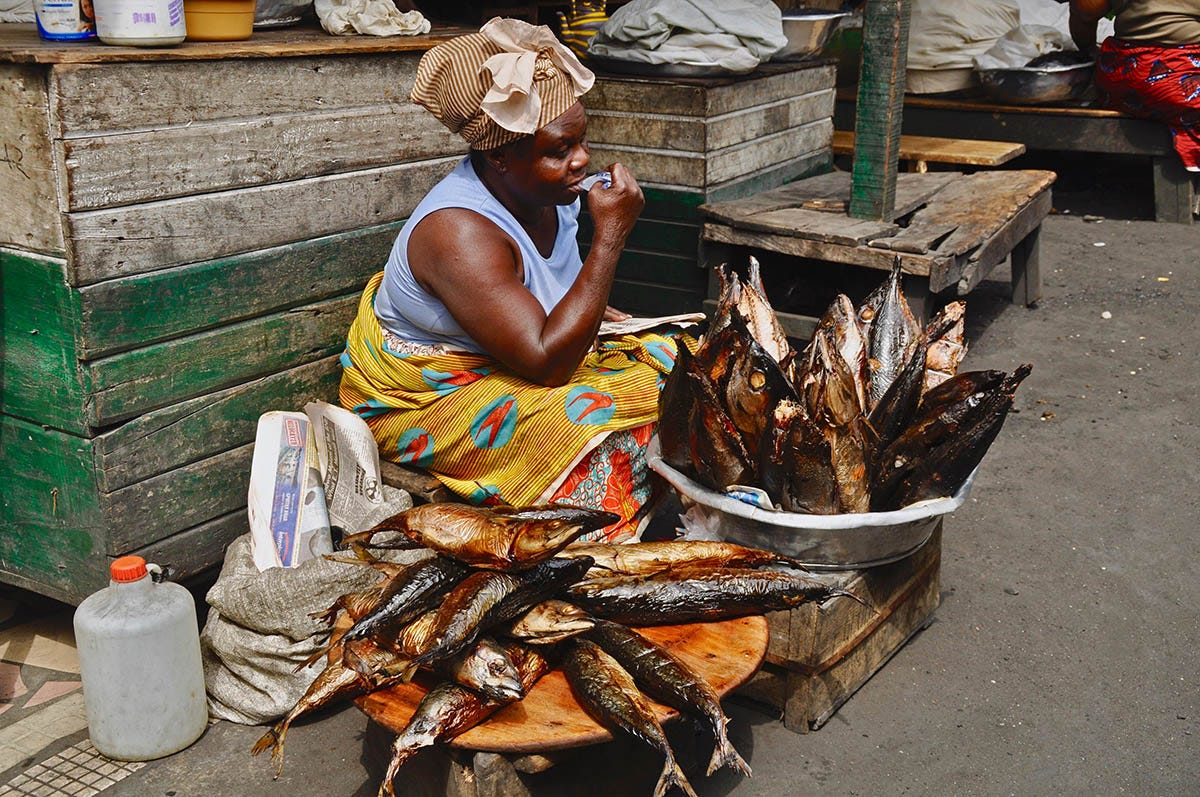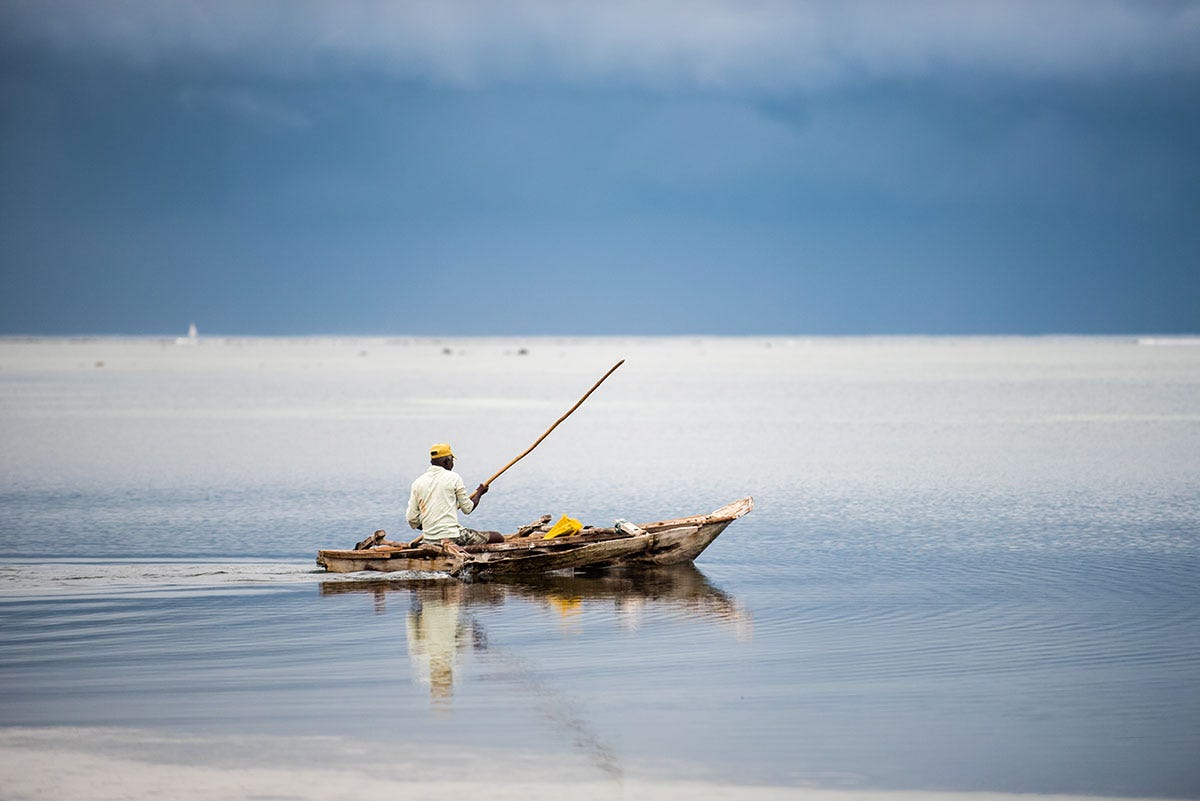Many coastal communities in Sierra Leone and Liberia rely on fishing for food and income. Missing a daily catch can mean the difference between communities being fed or going hungry.
As fish stocks decline — due to overfishing and climate change — it’s becoming harder for people to catch the fish they need. And even though they venture further out to sea for longer than their boats can withstand, they often return without a catch.
Worse still, with climate change making extreme weather events like storms more dangerous to fishers, some may not return at all, leaving families in poverty.
So how can fishing be sustainable and adapt to climate change, while ensuring coastal communities — and many others across Africa — are able to feed themselves safely?
Dr Nwamaka Okeke-Ogbuafor, a researcher at the University of Leeds, believes those directly affected by extreme weather events are best able to address this question — and she has developed a process to help them find answers.
A breakthrough in building trust
“Both Sierra Leone and Liberia are post-war countries, which exacerbates not only food security but also distrust and suspicion between different groups and communities,” explains Dr Okeke-Ogbuafor.
“This makes it harder, but even more important, to ensure that all those concerned are well represented and actively taking part in the discussions and decisions that will impact their future resilience to climate change.”

Supported by funding from Adaptation Research Alliance, Dr Okeke-Ogbuafor and Professor Selina Stead, with colleagues from the Conservation Society of Sierra Leone, brought together a wide range of people from the country’s fishing communities — old, young, men and women — to connect with academics, government officials, the private sector and NGOs.
But rather than just expecting everyone to sit down and come up with the concept of climate-smart fisheries immediately, they took them through an engagement process to build trust and understanding first, as part of an innovative new process.
Collaboration for transformation
Dr Okeke-Ogbuafor and Professor Stead’s process has four stages. Firstly, there are peer-to-peer workshops, where participants share their knowledge and experiences.
Then comes co-creation workshops, where people learn how to work together by being open.
These are followed by co-interpretation workshops, where they begin to look at the problem together and interpret it in different ways, based on their unique perspectives. This co-develops a shared understanding of impacts on different people.
The fourth and final stage is co-transformation, where participants discuss their similarities and differences, what they have learned and how they can put this to good use and make positive changes to improve their lives.
The people involved come from very different social and economic backgrounds, but our process teaches them how to talk to each other so everyone feels valued. They see that everyone has their own perspective and understanding of the issues and that needs to be respected. Many of the academics involved came thinking they’d be passing on their knowledge, but in fact it was often the opposite — a reverse kind of mentoring. But what came out at the end were shared ideas that everyone can own and believe in.
A future in forecasting and farming
The process helped to create a climate-smart fishery concept that supports both food security and community resilience.
It involves two major initiatives: co-developing aquaculture (the practice of farming seafood such as shellfish or plants) to provide a sustainable and reliable source of food for coastal communities, alongside nowcasting (accurate short-term marine forecasts) so the ongoing fishing of wild stocks can become safer and more efficient.

“Fishing communities in West Africa are not used to using forecasts — but as they travel further to find the fish, the chance of the weather changing increases as does their risk of exposure to dangerous fishing conditions,” explains Dr Okeke-Ogbuafor.
To help improve community access to better weather forecasting, the researchers turned to African SWIFT — an international project led by the University of Leeds that has been developing more accurate weather forecasting models for Africa, in particular short-term forecasts of extreme weather.
By helping communities gain access to reliable forecasts, that can tell them the likelihood of storms in the next 6, 12 or 24 hours, they can choose when to go out, reducing the risk of a wasted day or worse, a lost life.
Scaling up the model
With such a wide range of stakeholders involved in devising a model for future climate-smart fishing in both countries, turning these ideas into reality is more likely.
Now the team plans to carry out a policy review, to identify how climate-smart fisheries could be supported by local authorities and governments.
Dr Okeke-Ogbuafor has also been awarded a fellowship from the AXA Research Fund which will enable her to expand this research and pilot environmentally-friendly marine aquaculture across more communities.
She is also investigating how this type of food production could be integrated into wider aquatic and terrestrial food security policy, to mitigate food insecurity from vulnerable fisheries.
“One of the most important elements of the project has been the strong and diverse coalition for change that we’ve built in a new network,” concludes Dr Okeke-Ogbuafor.
“This community involves representatives from a range of stakeholders including the Ministry of Fisheries, right from the start, which makes it possible to easily scale this up from one community to the whole country.”
Further Information
Dr Nwamaka Okeke-Ogbuafor is a researcher in the School of Earth and Environment at the University of Leeds.
Cover picture credit: Conservation Society of Sierra Leone (CSSL)





